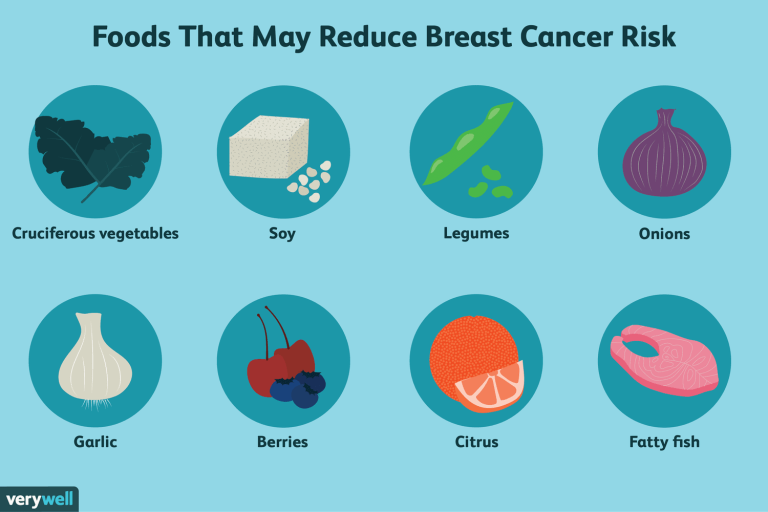A Cancer Prevention Diet starts with everyday choices: more plants, smart fats, fiber-rich staples, and fewer ultra-processed foods. Research links certain dietary patterns—not single “miracle” foods—to lower risk across common cancers. With a practical plan, you can eat well, enjoy your meals, and support long-term health.
Why a Cancer Prevention Diet Matters
Diet is one of the most changeable risk factors. While genes and environment play roles you can’t fully control, consistent food habits help tilt the odds in your favor. Patterns like the Mediterranean style—vegetables, fruit, legumes, whole grains, nuts, olive oil, and fish—associate with lower risk for several cancers. Pair that with movement, healthy weight, and limited alcohol to compound benefits.
Build Your Cancer Prevention Diet
Center your plate on antioxidant-rich plants and minimally processed staples.
H3 — Antioxidants & phytochemicals
Colorful plants supply carotenoids, vitamin C, polyphenols, and other compounds that counter oxidative stress and support immune defenses. Aim for a “rainbow” each day: leafy greens, crucifers (broccoli, cabbage), orange veg (carrots, squash), tomatoes, berries, citrus, beans, and whole grains.
H3 — Fiber as a daily target
Fiber helps keep your digestive tract moving, diluting and sweeping away potential carcinogens. Build to at least 25–38 g per day from beans, lentils, oats, bran, whole grains, fruit, and vegetables. A higher-fiber pattern is linked with lower colorectal cancer risk.
H3 — Practical ways to add plants
- Breakfast: Oatmeal with berries, nuts, and ground flax.
- Lunch: Bean-heavy salad or whole-grain wrap with greens, tomato, avocado.
- Snacks: Fruit, raw veg with hummus, or a small trail mix.
- Dinner: Half plate vegetables, a quarter whole grains, a quarter lean protein.
Cancer Prevention Diet: Fats, Sugar & Carbs
Not all fats—or carbs—act the same.
H3 — Choose healthy fats
Emphasize unsaturated fats (olive oil, nuts, seeds, avocado) and omega-3s (salmon, sardines, trout, flax). Keep saturated fat (fatty red meat, full-fat dairy) modest and avoid trans fats and frequent deep-fried foods.
H3 — Curb sugar and refined starch
Sugary drinks, white bread, pastries, and ultra-refined snacks spike blood sugar and displace protective foods. Swap in whole grains (oats, brown rice, quinoa, whole-wheat bread) and non-starchy vegetables to help with weight control and metabolic health.
Limit Processed & Red Meat
Processed meats (bacon, sausages, hot dogs, deli meats) consistently associate with higher colorectal cancer risk; risk also rises with large amounts of red meat. You don’t need to be perfect—just limit frequency and portion size and diversify proteins: fish, poultry, eggs, beans, lentils, tofu, and soy foods.
Cancer Prevention Diet: Smart Prep & Cooking
How you cook matters as much as what you buy.
H3 — Boost nutrients, lower by-products
- Go gentle: Lightly steam, simmer, stew, or roast at moderate heat to preserve vitamins.
- Mind the grill: Charred and flame-licked meats can form carcinogenic compounds. If grilling, marinate, use lower heat, flip often, and avoid charring.
- Use high-smoke-point oils for high heat; store oils cool and dark.
- Wash produce well; use cooking water for soups to keep nutrients.
- Spice it up: Garlic, ginger, turmeric, rosemary, basil, and curry blends add flavor and polyphenols.
GMOs, Pesticides & Risk: A Balanced View
Evidence on GMOs and cancer in humans remains inconclusive. If you’re concerned about pesticide exposure, you can prioritize organic or local produce when feasible, peel thick-skinned items, wash well, and focus on eating more plants overall—the net benefit of higher fruit and vegetable intake is clear.
Lifestyle Habits That Amplify Your Diet
A Cancer Prevention Diet works best alongside daily habits that lower risk:
- Stay active: Target 150+ minutes of moderate activity weekly, plus strength work.
- Maintain a healthy weight and build lean mass: Both support lower risk for several cancers.
- Limit alcohol: Up to 1 drink/day for women, 2 for men—less is better.
- Get nutrients from food first; supplements can’t replace an eating pattern rich in whole foods.
- After treatment: Many survivors follow the same prevention principles—work with your clinician for personal guidance.
A Simple 7-Day Starter Plan
- Daily: 5+ servings vegetables/fruit, 25–38 g fiber, olive oil as main fat.
- Protein: Beans/lentils 4–7x/week; fish 2–3x/week; poultry/eggs as needed; limit red/processed meat.
- Grains: Mostly whole (oats, brown rice, whole-wheat bread).
- Cooking: Mostly gentle methods; grill sparingly and avoid charring.
- Drinks: Water, tea, or coffee (lightly sweetened or plain).
- Extras: Herbs and spices at every meal.

